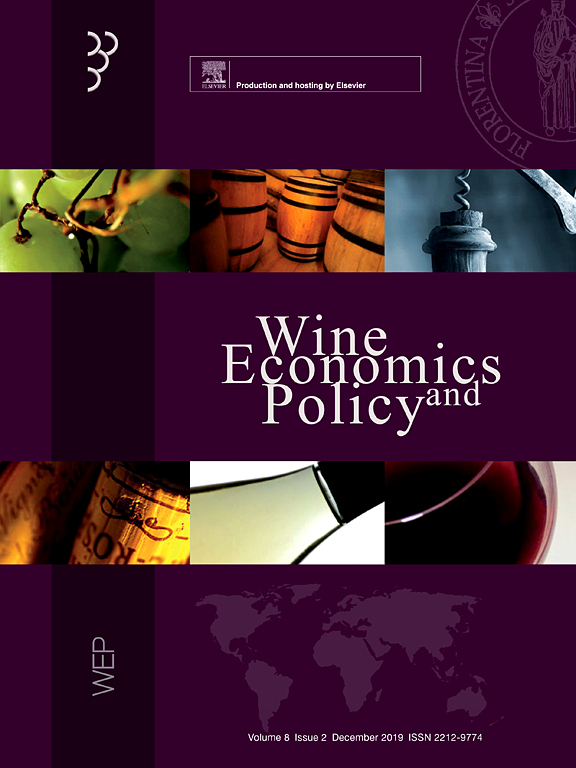Choosing a lifestyle? Reflection of consumer extrinsic product preferences and views on important wine characteristics in Germany
Published 2019-12-31
Keywords
- Wine-related lifestyle,
- Wine quality,
- Conjoint analysis,
- Consumer marketing,
- Wine preference
How to Cite
Abstract
Wine is a product, in which heterogeneous facets are marketed abundantly. Quality selections like origin, ratings, sustainable productions are (increasingly) important to the sector. Little is known about how and when the common quality scale interferes with other quality attributes and how lifestyle factors determine changing preferences. Hence, the study investigates which attributes are preferred by consumers and how they attach to lifestyle and consumption habits. The consumer survey (N = 962) itself used a direct (questionnaire) and an indirect rating technique (choice experiment) to elicit preferences for selective attributes for wine and the attachment to a wine-related lifestyle. Most important factors in the wine-related lifestyle approach were used to describe different consumer segments derived from latent class analysis based on choice preference. Latent class unveiled five different consumer segments. With regard to the importance of other extrinsic attributes (e.g. organic production) growing societal demand for ethical consumption, ‘organic’, ‘medals and awards’ seem not to (yet) be of high relevance for the product wine. The geographical site of production is a quality attribution of high importance to consumers. Nonetheless the largest consumer segment found, was considered to specifically look for further information. It seems of relevance to understand information-seekers behavior better and the nature of information, they would like to get.

